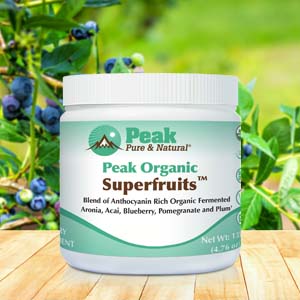Get Easy Health Digest™ in your inbox and don’t miss a thing when you subscribe today. Plus, get the free bonus report, Mother Nature’s Tips, Tricks and Remedies for Cholesterol, Blood Pressure & Blood Sugar as my way of saying welcome to the community!
The drink that doubles stroke risk in post-menopausal women

There are a lot of great things about being a woman who is past menopause (goodbye tampons and birth control!) — but your stroke risk isn’t one of them.
In the decade after menopause, your stroke risk doubles. And depending on your lifestyle and genes, it may go up even more than that…
Smoking, not exercising, drinking alcohol and other unhealthy habits can cause your stroke risk to skyrocket. Your family history and ethnicity affect your stroke risk too.
So, if you’re a post-menopausal woman, pay attention to how your habits and genes play into your stroke risk. And more importantly, find ways to get that rising risk back down.
Luckily, I know one simple way to do just that — stop drinking diet drinks.
Diet drinks drive stroke and cardiovascular risks
Maybe diet drinks have never been your thing, or maybe they’re the guilty pleasure you just can’t quit. If you fall into the latter camp and you’re a woman who’s made it through menopause, you’re stoking the flames of an already dangerous stroke risk.
A new study published in Stroke, a journal of the American Heart Association, found that drinking two or more diet drinks per day doubled stroke risk in certain groups of post-menopausal women. For example:
- Women without heart disease or diabetes were 2.44 times more likely to have a blockage in a small artery of the brain that led to a stroke.
- Obese women without heart disease or diabetes were 2.03 times more likely to have a stroke caused by a clot.
- Black women without heart disease or diabetes were 3.93 times more likely to have a stroke caused by a clot.
As a whole, women who drank two or more diet drinks per day faced these increased risks compared to women who drank diet drinks once per week or less:
- 23 percent higher stroke risk
- 31 percent higher risk of a clot-caused (ischemic) stroke
- 29 percent higher risk of heart disease
- 16 percent higher risk of dying from all causes
The study included 81,714 postmenopausal women who were between the ages of 50 and 79 when it started. Researchers tracked their diet habits and health for nearly 12 years.
Researchers also made sure to adjust the data for other stroke risk factors, like age, high blood pressure, and smoking. So, the risk they identified was all due to those dang diet drinks.
Tackling a diet drink addiction
It’s no secret that the artificial sweeteners found in diet drinks aren’t great for you. So post-menopausal woman or not, you’re probably better off ditching the diet soda.
But that’s not always easy. Maybe drinking diet soda goes back to your college days… 25 years ago. Or it’s the one thing you look forward to in the afternoon. Or you feel cranky and irritable when you can’t get your hands on a can of diet soda.
Habits are hard to break. Pair that with the fact that the artificial sweeteners in diet drinks can be psychologically and even physically addictive, and you’ve got a challenging task before you. But you can conquer your cravings for diet drinks.
Stopping anything cold turkey is harder than making a gradual change. So, if you’re a full-fledged diet drink addict, start by slowly weaning yourself from them. Cut back to one per day at first. Then one every other day. Then twice per week. Then once per week. Then only on special occasions when you want to treat yourself.
Of course, if you find that it’s impossible to practice moderation when it comes to diet drinks, you may need to cut them out completely right away. I know sometimes drinking just one is like opening a can of worms (or a can of diet coke). It makes you want more.
Regardless of which approach you take, it helps to replace your diet drinks with healthier alternatives. If you look forward to a diet drink in the afternoon, for example, replace it with something else you love (or can learn to love), like:
- Sparkling water (plain or flavored)
- Kombucha
- Tea
- Coconut water
- Mineral water
- Fruit-infused water
Depending on your health goals, some of these may have certain downsides (like calorie counts) or upsides (like nutrient counts). But the fact is, every single one is better for you than that Diet Coke you’ve been drinking. So, drink up and keep yourself safe from strokes.
Editor’s note: What do you really know about stroke? The truth is, only 10% of stroke survivors recover almost completely, and all doctors can offer is what to do after a stroke occurs. That’s unacceptable considering 80% of strokes are preventable! Click here to discover how to escape The Stroke Syndrome: 5 Signs it’s Stalking You — Plus the Hidden Causes and Preventive Measures You’ve Never Heard About!
Sources:
- Diet drinks may be associated with strokes among post-menopausal women — MedicalXpress
- Artificially Sweetened Beverages and Stroke, Coronary Heart Disease, and All-Cause Mortality in the Women’s Health Initiative — Stroke
- Menopause and Stroke: An Epidemiologic Review — The Lancet Neurology
- Can you get hooked on diet soda? — CNN














